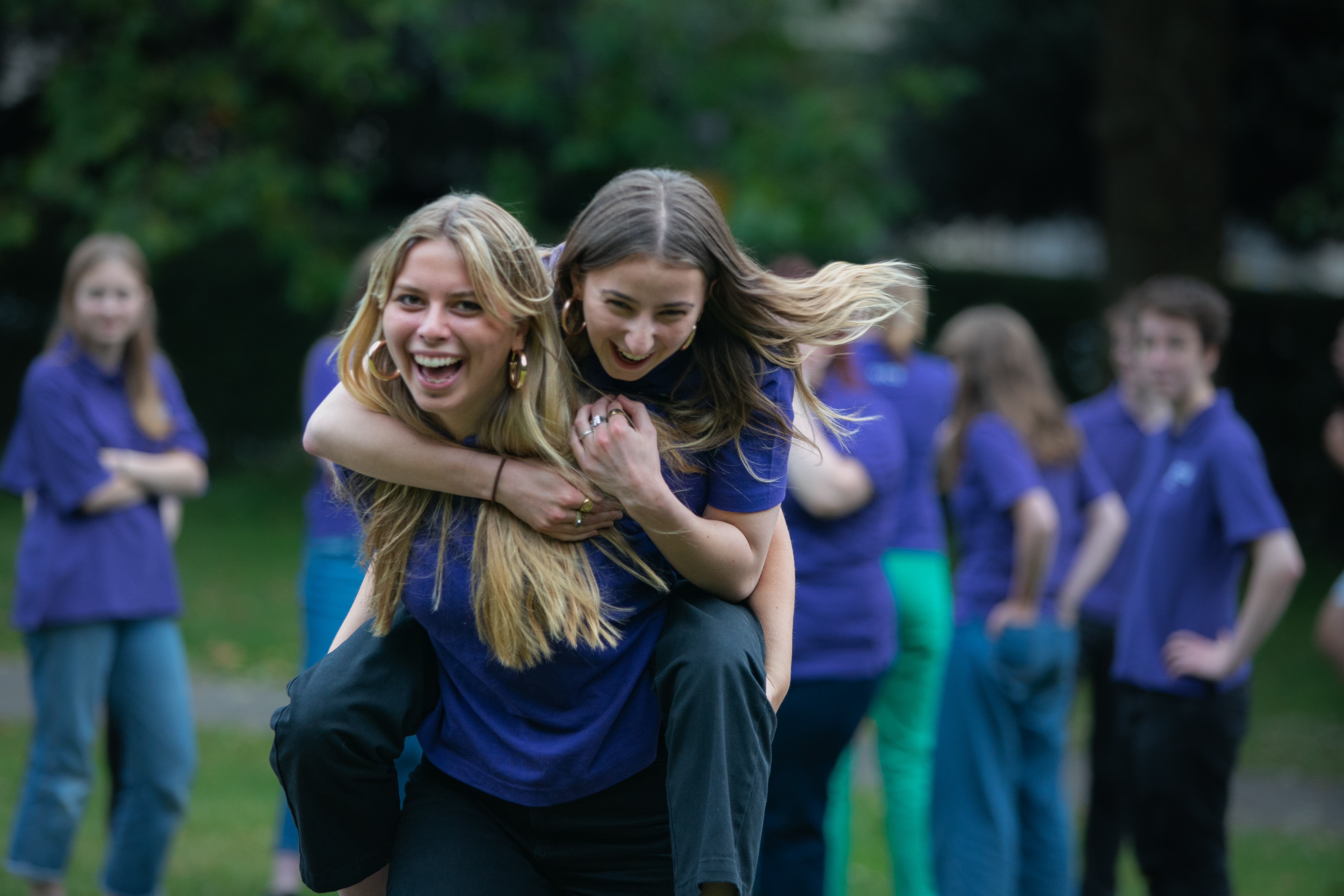
'Paul McCartney was sitting next to me playing one of his pieces that I had arranged, and he asked me, “what chord should be there?” He asked me what chord to use!’ It is safe to say Ben Parry, the artistic director and principal conductor of the National Youth Choirs of Great Britain (NYCGB), has had a spectacular career so far. Now blushing from such a blatant (but fully justified) name drop, these days Parry proudly puts his efforts into the next generation of musical talent, working closely with youth choirs as well as spending time on other projects.
The beauty of choral singing is something that Parry strives to share with every young person, a mission that underlines NYCGB's learning and engagement work across the country. ‘The wonderful thing about being in a room with singers is that the room resonates,’ says Parry. ‘It is not just your body that is resonating; it is the room and the chair behind you. It is the walls and the floor. That wonderful feeling of hearing live music in a room is something that we've missed throughout the pandemic.’
Celebrating its 40th birthday in 2023, NYCGB is a family of choirs for outstanding UK-based young singers, and those with outstanding potential. Comprising five choirs and around 750 young people between the ages of nine and 25, the collective regularly takes part in programmes and concerts across the country.
‘NYCGB is unrecognisable from what it was 10 years ago, for so many reasons – not least those of access and inclusion, but also representation,’ says Parry. While it doesn't claim to have achieved full equality, and still strives for further positive changes, the representation of different ethnicities, those from different socioeconomic backgrounds and those with disabilities is something that the choir is thinking about and challenging.


National Youth Choir members performing at Woolwich Works © NYCGB
Facilitating engagement
When asked about what it is like to lead a choir, Parry points out his dislike for the term ‘leader’, preferring to use the term ‘facilitator’, shifting the focus back onto the young performers. ‘It is the member voice and the outcome that are important; my role is to facilitate them and the music,’ Parry says. To ensure the longevity of its reach and to support its young people further in their careers, NYCGB provides a training ground for young leaders, who run learning and engagement sessions with fellow students.
Parry believes there are some universal truths when it comes to conducting a choir that you can apply to any group. ‘The more enthusiasm and engagement you give them, the more you get back,’ he says. ‘It doesn't matter if it is amateur or professional, young or old, a chapel or a rock choir. I have been in so many circumstances where I have seen conductors do the opposite – they get angry or worse still, they switch off. You can see the energy draining from the room.’
In singing, your body is your instrument, so it is no wonder that enthusiasm and energy are crucial to maintaining the engagement of a group – especially when young people are involved. NYCGB did a brilliant job at ensuring its singers were engaged and the sense of community was kept alive throughout the pandemic, working remotely to deliver collaborative sessions to the homes of all its members.


© NYCGB
Resources
The youth choirs in NYCGB are clearly made up of extremely talented singers, but Parry insists that perfection isn't the main goal of the choirs – instead, the aims are enjoyment and community. ‘Everybody can sing – this notion of tone deafness doesn't really work,’ he says. There are lots of exercises and tricks Parry uses regularly that can help singers find their vocal, recommending new teachers or fledgling conductors use online resources and YouTube videos to find some that suit them. Parry recommends a book on the brink of release by Lucy Hollins and Suzzie Vango titled How to Make Your Choir Sound Awesome, which may be of use to those running school choirs of their own.
Alongside multi-media resources, Parry encourages others to ‘have a dialogue’, arguing that it should be more commonplace to get in touch with industry professionals directly with queries or in search of guidance for your choir or teaching practice. ‘There are so many people out there who would be delighted to engage in these conversations – reach out to your region or county choir; talk to the NYCGB or the National Children's Choir about how to get your children involved,’ says Parry.
The bigger picture
It is widely acknowledged that the choral industry continues to lack diversity and representation, and Parry believes that organisations were ‘sitting on their hands’ before the pandemic. Just as Covid forced many industries to re-evaluate and ‘face the music’ in the wake of the murder of George Floyd, alongside ripples of the #MeToo movement, so did it impact those working in the world of choral music.
When analysing what steps need to be taken to achieve true representation within a choir, group or company, some discussions can be uncomfortable and confrontational. Parry says that after hundreds of conversations with prominent figures in the world of choral music – and also challenging himself on a personal level – the outcome of these changes within NYCGB has been ‘unutterably rewarding’, and that all groups should be analysing their work internally.
‘It is still a major challenge for us at NYCGB, but we have turned a corner with it because we have asked ourselves those questions,’ says Parry. As a national organisation, NYCGB asked itself why the vast number of its members came from South East England, and what they could do to change this. The group challenged its representation, broadening horizons by targeting the representation of gender identity, sexuality, disability and class within the young people it works with.
It is brilliant that these conversations are happening within prominent organisations in the choral industry; the first step towards resolving systemic issues such as a lack of representation is to acknowledge and discuss them. Looking forward, there is hope that more facilitators and directors will use their voices to ensure the longevity of choral music and prevent the alienation of younger generations.
Ben Parry's tips for conducting a choir
- Warming up is important. You would not run 1500m without stretching your legs, so don't sing without warming up. A fun game Parry likes to play is called 1,2,1 and adds a challenge to the session as he tries to catch the singers out.
- One thing Parry learnt from NYCGB is an approach called tonal centring, where you pick a note and everyone must adjust and sing it with you, uniting the group.
- Cooling down is something you can combine with a quick mindfulness exercise at the end of a session. You can ask your singers to think of one thing they achieved that day, and another thing they hope to achieve tomorrow, while focusing on the breath.








